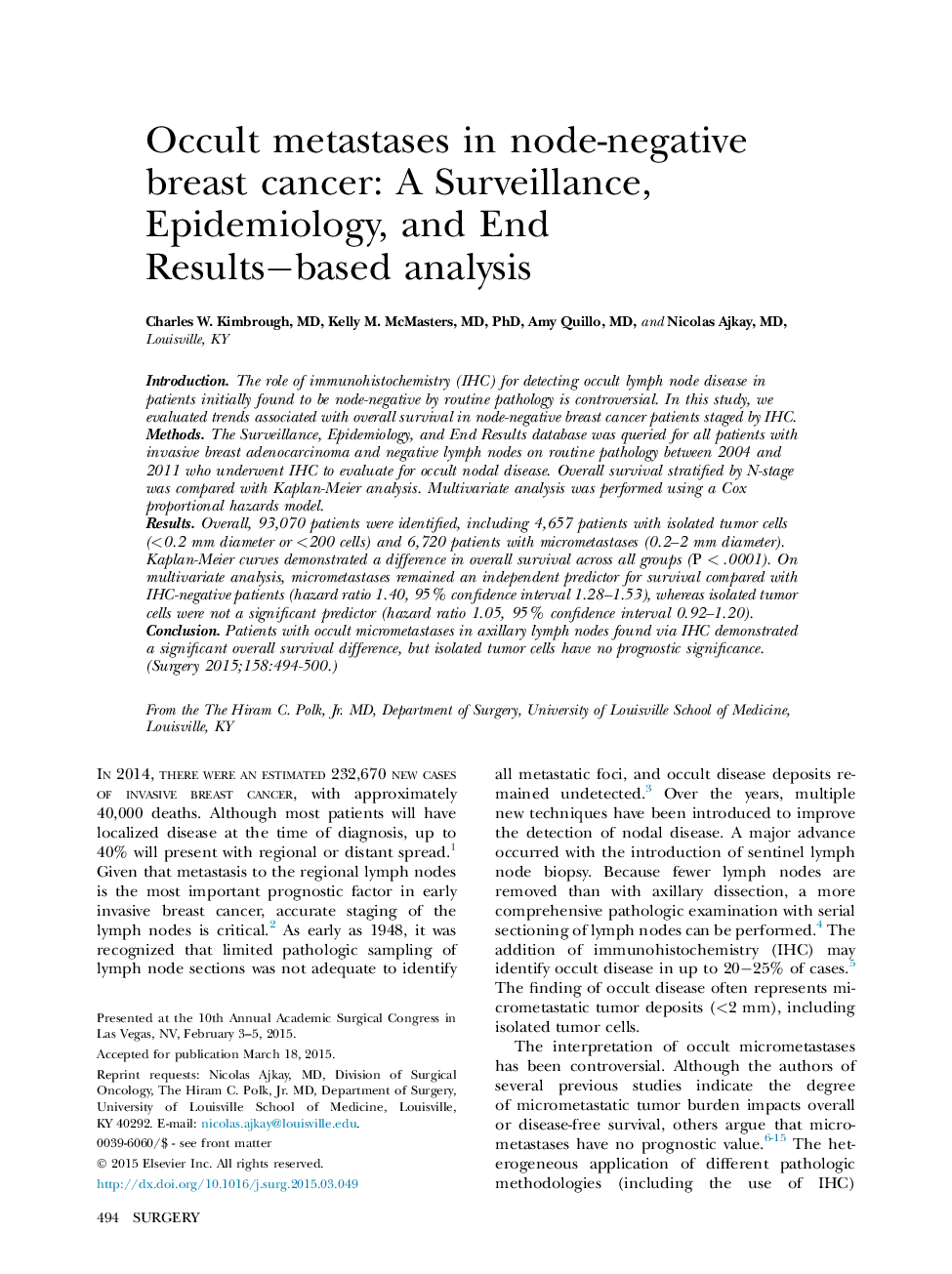| Article ID | Journal | Published Year | Pages | File Type |
|---|---|---|---|---|
| 4307020 | Surgery | 2015 | 7 Pages |
IntroductionThe role of immunohistochemistry (IHC) for detecting occult lymph node disease in patients initially found to be node-negative by routine pathology is controversial. In this study, we evaluated trends associated with overall survival in node-negative breast cancer patients staged by IHC.MethodsThe Surveillance, Epidemiology, and End Results database was queried for all patients with invasive breast adenocarcinoma and negative lymph nodes on routine pathology between 2004 and 2011 who underwent IHC to evaluate for occult nodal disease. Overall survival stratified by N-stage was compared with Kaplan-Meier analysis. Multivariate analysis was performed using a Cox proportional hazards model.ResultsOverall, 93,070 patients were identified, including 4,657 patients with isolated tumor cells (<0.2 mm diameter or <200 cells) and 6,720 patients with micrometastases (0.2–2 mm diameter). Kaplan-Meier curves demonstrated a difference in overall survival across all groups (P < .0001). On multivariate analysis, micrometastases remained an independent predictor for survival compared with IHC-negative patients (hazard ratio 1.40, 95% confidence interval 1.28–1.53), whereas isolated tumor cells were not a significant predictor (hazard ratio 1.05, 95% confidence interval 0.92–1.20).ConclusionPatients with occult micrometastases in axillary lymph nodes found via IHC demonstrated a significant overall survival difference, but isolated tumor cells have no prognostic significance.
